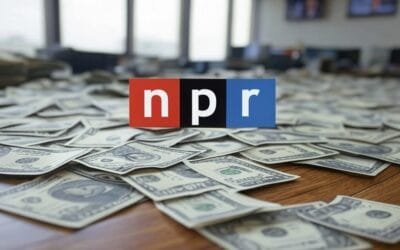The Federal Communications Commissions Chief Diversity Officer, Mark Lloyd, wants the government to socialize the media. In his 2006 book Prologue to a Farce, Lloyd calls for a far-reaching government program that would straitjacket private media companies and funnel tens of billions of dollars into a tax-supported public media–an agenda shared by many of his associates. A massive nonprofit media run by the state would better inform Americans, Lloyd claims, although, feeling generous, he allows that there should be a place for private communications services in a republic.
You might think this radical call for government control of the media is at odds with the First Amendment and the ideals of its authors. Not according to Lloyd and his fellow travelers, who portray their vision of a government-funded press as a continuation of the American tradition. The Founders, they say, weren’t committed to protecting a profit-seeking press from government control. Instead, their primary concern was making sure the press could effectively educate and inform Americans, and they obsessively sought to subsidize the press in order to achieve that goal.
Let’s review the facts. During the founding era, America was buzzing with newspapers–all of them privately owned and for-profit. Profit-seeking was so much a part of the American press that, as Professor Paul Starr notes, The word advertiser appeared in the title of 5 of 8 dailies published in 1790 and 20 of 24 dailies in 1800. The Founders did not curtail this profit-seeking press or supplement it with a government press. Instead they created a limited, rights-protecting government that secured freedom of speech and of the press. They were keenly aware that a free country depended on the free communication of ideas; indeed, it was America’s burgeoning press that had helped transform the colonists from loyal subjects into intransigent rebels, something that would have been impossible had the British government-controlled or restricted the press.
Lloyd’s plan is point for point a repudiation of the Founders ideals.
Lloyd advocates billions in new taxes on the private media, while the Founders reviled the 1765 Stamp Act, which sparked the chain of events climaxing in the Revolution, in large measure because it taxed the press.
Lloyd calls for federal regulations over commercial broadcast and cable programs regarding political advertising and commentary, educational programs for children and even the number of commercials they can run, while the Founders solemnly declared that Congress shall make no law abridging the freedom of speech.
Lloyd advocates a government-run public media that would force you to support through taxes ideas you may oppose, while the Founders recognized the individuals freedom of conscience, which includes the right not to support views you object to.
The most Lloyd can dig up to substantiate his claim that a sprawling public press and crippling restrictions on the private press are consistent with the Founders ideals is an obscure 1792 act that reduced postal shipping rates for newspapers. According to Lloyd, the Founders advocacy of the Postal Act of 1792 put communication service and a subsidy for political discourse at the center of our republic.
It was not a subsidy but freedom that the Founders put at the center of our republic. Even if we grant Lloyd that the Founders supported the Postal Act because they saw a modest role for government in promoting the spread of news, an objective assessment of such support would have to conclude that it contradicts their fundamental commitment to a free press. The reporting of news must be left to the voluntary actions of private individuals–any news subsidy inevitably sets the stage for government control of the press (just observe Washington’s intrusion into the affairs of today’s bailout recipients).
At the deepest level, Lloyds is an act of moral embezzlement. He is using what is at most a minor inconsistency on the part of the Founders to smash their achievement and destroy America’s free press. The FCCs adoption of his proposals would not continue the American tradition. It would end it.
(c) 2010 Ayn Rand Institute. All rights reserved.









